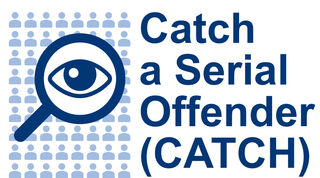Sexual Abuse
Military Program Targets Serial Sexual Offenders
Preliminary data found 25 potential predators.
Posted June 2, 2022 Reviewed by Davia Sills
Key points
- 70 percent of service members who have been sexually assaulted do not report the crime.
- CATCH was created in an effort to break down reporting barriers while still allowing for the pursuit of sexual predators.
- Military law enforcement personnel can now check anonymously-provided suspect data against other databases and work to identify serial offenders.
There are routine news articles about the sexual assault problem in the military and the multiple efforts underway to solve it. Some of these initiatives get more air time than others. One that deserves more publicity is a relatively quiet program launched in August 2019 called Catch a Serial Offender, referred to simply as CATCH. CATCH allows for the anonymous reporting of perpetrator information, which, when combined with other reports and databases, can result in the identification of serial offenders.

Serial offenders can be hard to identify and apprehend because of the very real tendency of individuals not to report sexual assault. It is estimated that 70 percent of service members who have been sexually assaulted do not report the crime. Service members may not report rape or other sexual assaults due to shame, embarrassment, self-blame, fear of retaliation, and/or career concerns. CATCH was created in an effort to break down some of these barriers while still allowing for the pursuit of sexual predators.
To preserve confidentiality and promote the psychological and medical health of service members, the military codified restricted reporting in June 2005. Restricted reporting is essentially a de-identified report which does not result in disclosure of the identity of the service member making the report to their chain of command or to law enforcement while allowing them to confidentially access resources (e.g., advocate, medical care, mental health care, etc.) and establish documentation of the assault. A designated Sexual Assault Response Coordinator helps them to navigate these resources. As compared to an unrestricted report, in which the information is used to initiate a legal investigation with the involvement of the service member, chain of command, and law enforcement, restricted reporting permits highly protected confidentiality.
CATCH helps to level the playing field of the anonymous report and significantly augments restricted reporting. Because CATCH allows for the protected submission of suspect information, chances are increased that a perpetrator may be identified. From a psychological perspective, CATCH is an important option. CATCH allows the service member to take some control by providing what they can remember about the perpetrator to law enforcement while still protecting their identity. In the academic year 2020-2021, midshipmen and cadets at the military service academies made 43 submissions to the CATCH program. In the services, between September 2019 and May 2021, CATCH received 636 submissions from service members who filed a restricted report, resulting in 25 matches.
Agents from the Army Criminal Investigations Division, the Naval Criminal Investigative Service, and the Air Force Office of Special Investigations review CATCH submissions against a number of defense and national crime databases. When agents identify a serial offender, the service members who filed restricted reports/submitted the CATCH data are contacted through their Sexual Assault Response Coordinator to see if they are interested in changing their restricted report to an unrestricted report in order to allow law enforcement to open an official investigation. This decision is solely up to the individuals; if they decline, there are no ramifications, and their identity continues to be legally protected.
It is important to recall that restricted reports are frequently converted to unrestricted reports; about 25 percent of service members filing restricted reports opt to eventually change theirs to unrestricted so that they may participate in the military justice process (irrespective of CATCH data). In a recent change to the process, CATCH data may also be submitted by service members filing an unrestricted report if the perpetrator could not be identified by the individual or by law enforcement.
For a service member (or an adult military dependent, or a midshipman or cadet at a military academy) who has been sexually violated, CATCH is a viable option to assist in their own psychological health. Service members are able to fight back and take some control in a protected, safe way, as well as assist law enforcement in the identification of the military’s worst sexual offenders. As the military continues to grapple with reducing sexual assault in the ranks, CATCH is a vital tool. All branches of service and the National Guard include the option of a CATCH entry as part of a restricted report.
References
For service members, adult military dependents, or military academy midshipmen or cadets needing immediate support due to sexual assault, DoD has a 24/7 hotline called the DoD Safe Helpline which may be contacted anonymously at (877) 995-5247 or www.safehelpline.org for a live chat.


